Does weed induced psychosis? Sympthoms & Recovery
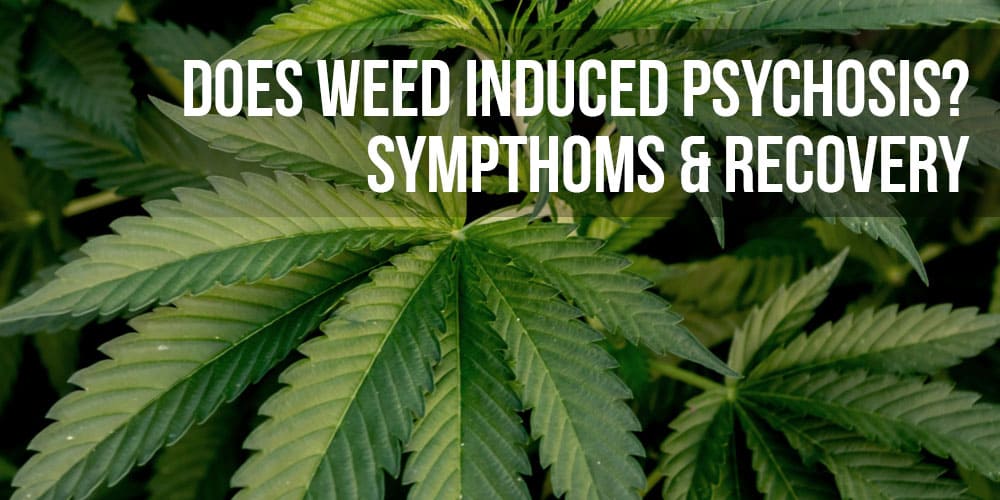
In the ever-evolving conversation around cannabis and its effects on mental health, one question persistently surfaces: does weed induced psychosis? This comprehensive exploration delves into the heart of the matter, examining the symptoms, the science behind cannabis-induced psychosis, and the pathways to recovery. As societal attitudes towards marijuana shift and legalization spreads, understanding the intricate relationship between cannabis use and psychosis becomes crucial for users, healthcare providers, and policymakers alike.
- What does THC do to the brain?
- Why Does Weed Affect People Differently?
- Cannabis and Short-Term Memory: The effect of weed on the brain
The Rising Concern of Weed Psychosis
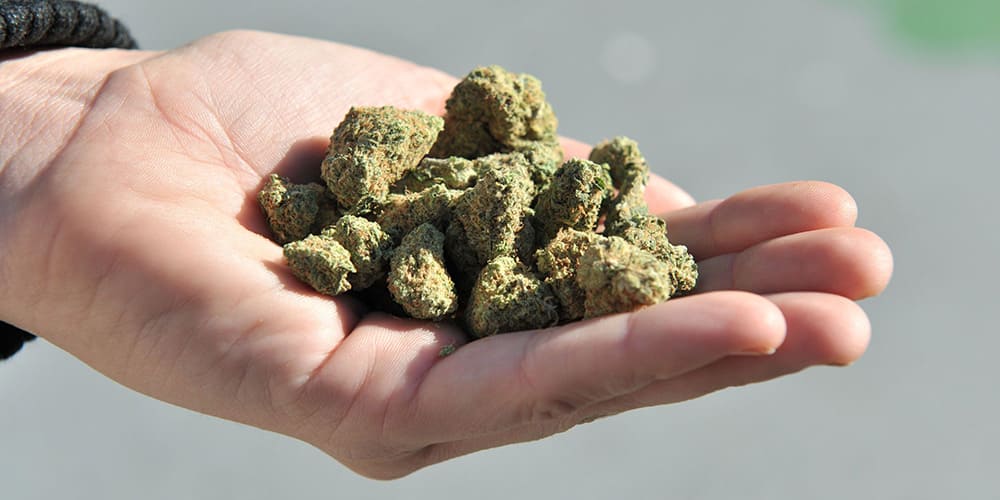
Weed psychosis emerges as a critical mental health concern, spotlighting the darker side of cannabis consumption. This condition manifests through severe symptoms like hallucinations, delusions, and a profound disconnection from reality, primarily triggered by the use of cannabis. Despite the widespread acclaim for cannabis’s therapeutic benefits, the threat of psychosis, particularly among those predisposed to mental health issues, underscores a need for greater awareness and precautionary measures.
The phenomenon of weed psychosis is increasingly observed alongside the evolution of cannabis products, noted for their escalating potency. Modern weed strains and concentrates boast significantly elevated levels of THC, the substance accountable for cannabis’s psychoactive effects. Such a surge in THC concentration heightens the psychosis risk for users, accentuating concerns within the sphere of contemporary cannabis usage.
Addressing weed psychosis necessitates a nuanced understanding of cannabis’s impact on mental health, especially against the backdrop of today’s potent products. As the availability and consumption of high-THC cannabis variants become more widespread, the importance of educating users about the potential risks and identifying vulnerable individuals becomes paramount. This approach aims to balance the benefits of cannabis with the imperative to mitigate adverse outcomes, ensuring a responsible integration of cannabis into medical and recreational contexts.
Embark on a potent adventure with High Octane’s 10 original mini joints, each 0.5 grams of an indica-dominant hybrid known for its intense aroma and deep relaxation. Ideal for a balanced, euphoric experience.
Signs and Symptoms of Cannabis-Induced Psychosis
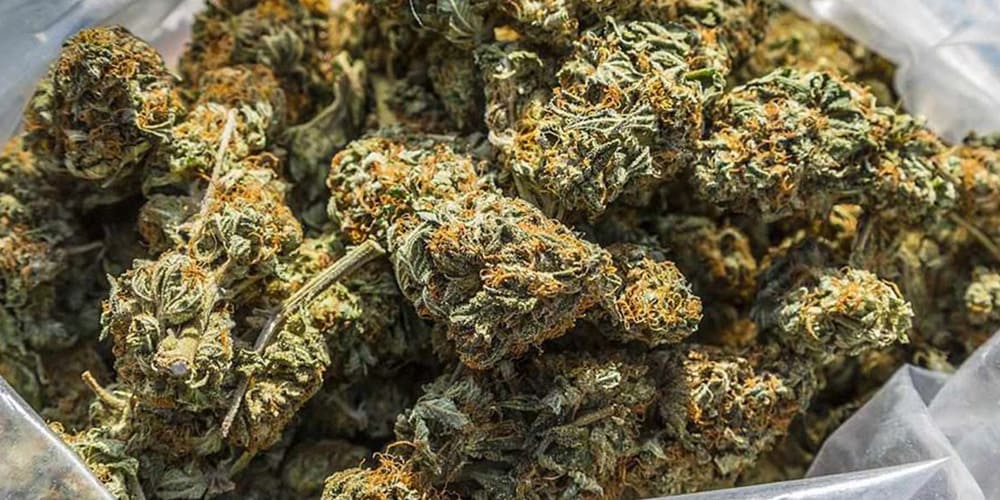
Identifying cannabis-induced psychosis involves recognizing a range of psychological symptoms that significantly impair one’s ability to discern reality. Key symptoms include:
- Hallucinations: Hearing, seeing, or feeling things that aren’t there.
- Delusions: Strong beliefs that are not supported by reality, such as paranoia.
- Disorganized Thinking: Difficulty organizing thoughts, leading to incoherent speech.
- Emotional Withdrawal: A marked decrease in emotional expression.
- Decreased Motivation: A lack of desire to engage in previously enjoyable activities.
Early detection and intervention are critical in mitigating the effects of psychosis and preventing potential progression into more severe mental health issues.
The Science Behind the Link
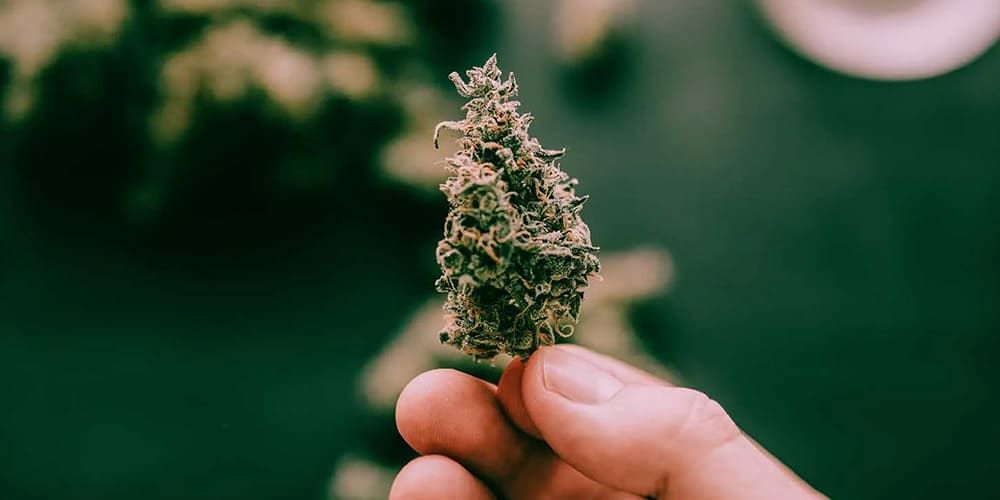
The precise mechanisms by which cannabis triggers psychosis in some individuals while sparing others continue to puzzle researchers and medical professionals alike. The active component of cannabis, THC, has the unique ability to mimic the neurotransmitter anandamide, which plays a crucial role in regulating mood, memory, and perception. This mimicry disrupts normal brain function and, in those predisposed, can precipitate episodes of psychosis.
At the heart of ongoing research is the exploration of how THC potency, along with the frequency of cannabis use, contributes to the risk of psychosis. High-potency strains, capable of delivering large doses of THC, appear to be more closely associated with the occurrence of psychotic episodes. This correlation suggests that not just the presence of THC, but its concentration and the regularity with which it is consumed, play pivotal roles in influencing an individual’s risk of experiencing psychosis.
Furthermore, the relationship between cannabis and psychosis is complicated by individual differences in genetic makeup, brain chemistry, and personal history, suggesting a multifactorial cause. Studies indicate that individuals with certain genetic markers or a family history of psychiatric disorders may be more susceptible to cannabis-induced psychosis. This vulnerability, combined with the increasing availability of high-potency cannabis products, highlights the pressing need for public health strategies that address prevention and provide clear guidance on the risks associated with cannabis use.
Experience the bliss of Marshmallow OG 10 original mini joints, each 0.5 grams, blending deep relaxation with an uplifting buzz. Its creamy, marshmallow aroma with herbal and earthy hints offers serene pleasure.
Prevention and Management Strategies
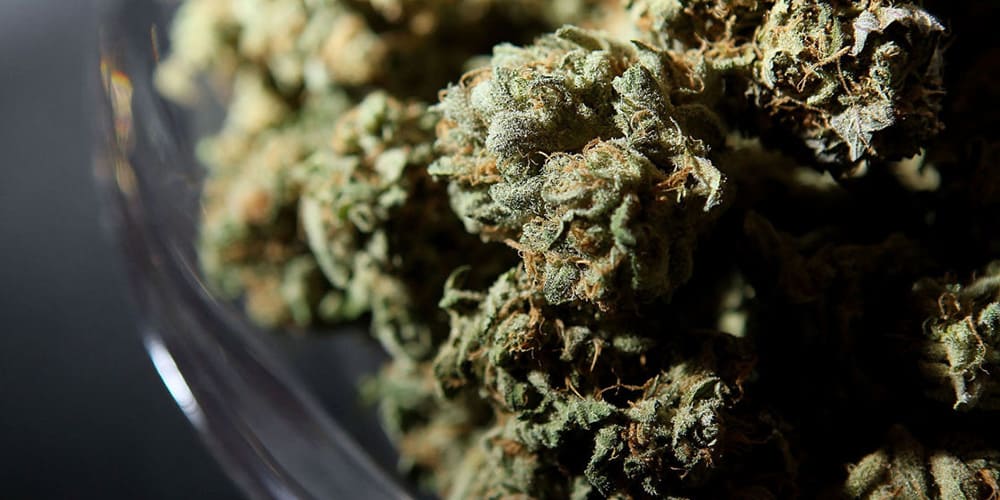
Preventing weed psychosis involves a multifaceted approach, encompassing public education, early intervention, and support for at-risk individuals. Education plays a pivotal role, highlighting the risks associated with high-potency cannabis and the importance of moderation for those who choose to consume weed. By informing the public about the potential mental health implications, individuals can make more informed decisions regarding their cannabis use.
Early intervention is key for individuals exhibiting signs of psychosis or those at high risk. Mental health professionals can provide support and resources to mitigate the progression of symptoms and address underlying issues. Furthermore, creating a supportive environment for those struggling with cannabis use can encourage individuals to seek help without fear of stigma or judgment.
For individuals diagnosed with weed psychosis, a combination of medical treatment, counseling, and support groups can be effective in managing symptoms and promoting recovery. Treatment plans are tailored to the individual’s needs, focusing on reducing psychosis symptoms and addressing cannabis dependence.
Relax with Watermelon Sugar High 10 Cannabis-Infused Gummies, offering a serene blend of watermelon flavor and soothing effects in each of the 10 gummies. Perfect for relaxation, sleep, and appetite enhancement.
Recovery and Management

Recovery from cannabis-induced psychosis involves a multifaceted approach, including:
- Ceasing Cannabis Use: The first and most crucial step is to stop using cannabis to prevent further episodes.
- Medical Treatment: Antipsychotic medications can be effective in managing symptoms.
- Psychotherapy: Counseling and psychotherapy can help address underlying issues and teach coping strategies.
- Support Networks: Family support and peer groups can provide essential emotional backing and advice.
Early intervention and treatment are key to a successful recovery, emphasizing the importance of seeking help at the first signs of psychosis.















